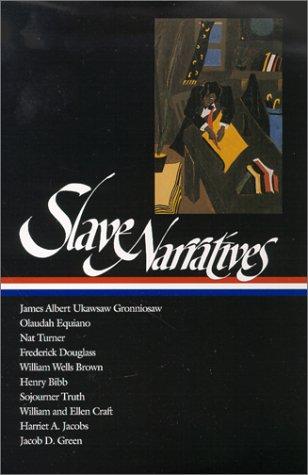Slave narratives. - Info and Reading Options
By William L. Andrews

"Slave narratives." was published by Library of America in 2000 - New York, it has 1035 pages and the language of the book is English.
“Slave narratives.” Metadata:
- Title: Slave narratives.
- Author: William L. Andrews
- Language: English
- Number of Pages: 1035
- Publisher: Library of America
- Publish Date: 2000
- Publish Location: New York
“Slave narratives.” Subjects and Themes:
- Subjects: ➤ Slaves' writings, American - African Americans - Slaves - Biography - Slave narratives - Race relations - Social conditions - History - Slaves, united states - African americans, biography - Slaves' writings - Esclaves - Biographies - Noirs américains - Écrits d'esclaves américains - BIOGRAPHY & AUTOBIOGRAPHY - Social Scientists & Psychologists - SOCIAL SCIENCE - Discrimination & Race Relations - Minority Studies - Slaves--united states--biography - African americans--biography - E444 .s56 2000 - E 444 s56 2000 - 305.5/67/092396073 b
- Places: United States
Edition Specifications:
- Pagination: x, 1035 p. :
Edition Identifiers:
- The Open Library ID: OL44635M - OL18424187W
- Online Computer Library Center (OCLC) ID: 45727949 - 42072108
- Library of Congress Control Number (LCCN): 99040360
- ISBN-10: 1883011760
- All ISBNs: 1883011760
AI-generated Review of “Slave narratives.”:
"Slave narratives." Table Of Contents:
- 1- James Albert Ukawsaw Gronniosow
- 2- Olaudah Equiano
- 3- Nat Turner
- 4- Frederick Douglass
- 5- William Wells Brown
- 6- Henry Bibb
- 7- Sojourner Truth
- 8- William and Ellen Craft
- 9- Harriet Ann Jacobs
- 10- Jacob D. Green.
"Slave narratives." Description:
The Open Library:
"Included are narratives by James Albert Ukawsaw Gronniosaw (1772) and Olaudah Equiano (1789), who were taken from Africa as children and brought across the Atlantic to British North America. The Confessions of Nat Turner (1831) provides unique insight into the man who led the deadliest slave uprising in American history. The widely read narratives by the fugitive slaves Frederick Douglass (1841), William Wells Brown (1847), and Henry Bibb (1849) strengthened the abolitionist cause by exposing the hypocrisies inherent in a slaveholding society ostensibly dedicated to liberty and Christian morality. Narrative of Sojourner Truth (1850) describes slavery in the North while expressing the eloquent fervor of a legendary woman. Running a Thousand Miles for Freedom (1860) tells the story of William and Ellen Craft's subversive and ingenious escape from Georgia to Philadelphia. Incidents in the Life of a Slave Girl (1861) is Harriet Jacobs' complex and moving story of her prolonged resistance to sexual and racial oppression, while the narrative of the "trickster" Jacob Green (1864) presents a disturbing story full of wild humor and intense cruelty. Together, these works fuse memory, advocacy, and defiance into a searing collective portrait of American life before emancipation."--BOOK JACKET.
Read “Slave narratives.”:
Read “Slave narratives.” by choosing from the options below.
Search for “Slave narratives.” downloads:
Visit our Downloads Search page to see if downloads are available.
Borrow "Slave narratives." Online:
Check on the availability of online borrowing. Please note that online borrowing has copyright-based limitations and that the quality of ebooks may vary.
- Is Online Borrowing Available: Yes
- Preview Status: borrow
- Check if available: The Open Library & The Internet Archive
Find “Slave narratives.” in Libraries Near You:
Read or borrow “Slave narratives.” from your local library.
- The WorldCat Libraries Catalog: Find a copy of “Slave narratives.” at a library near you.
Buy “Slave narratives.” online:
Shop for “Slave narratives.” on popular online marketplaces.
- Ebay: New and used books.